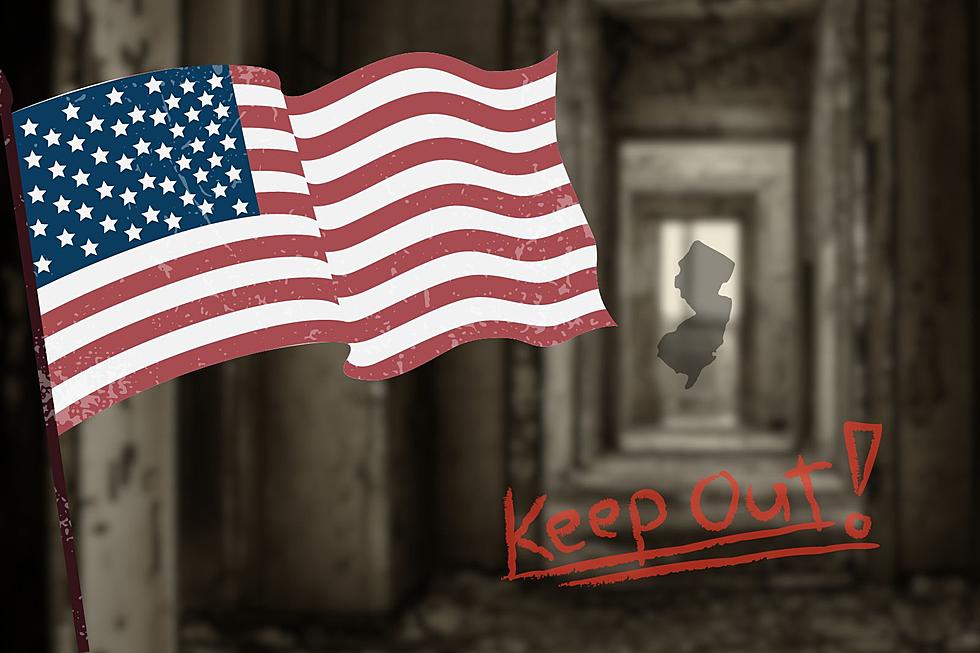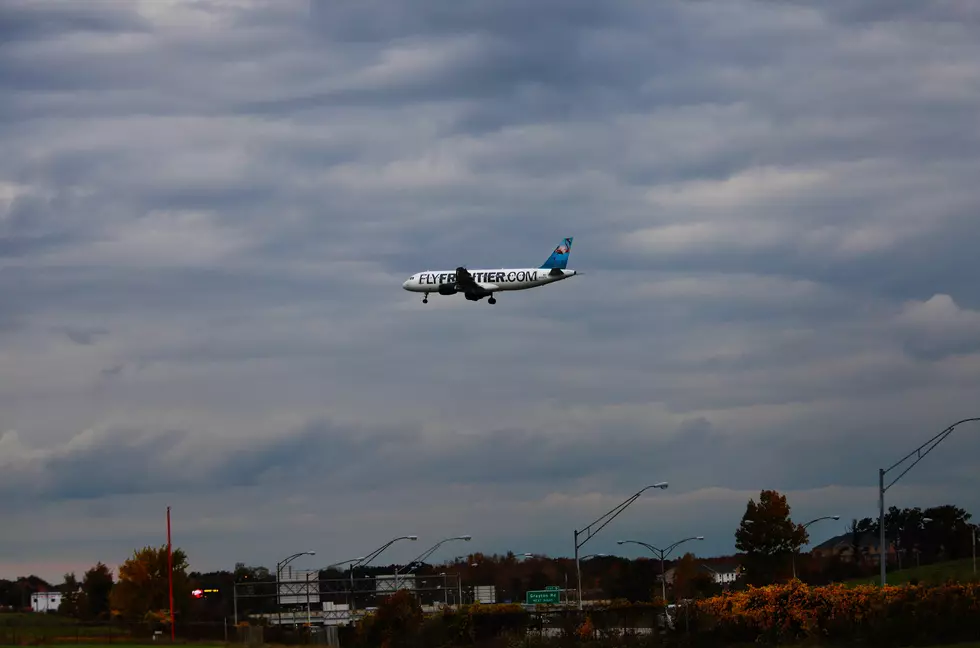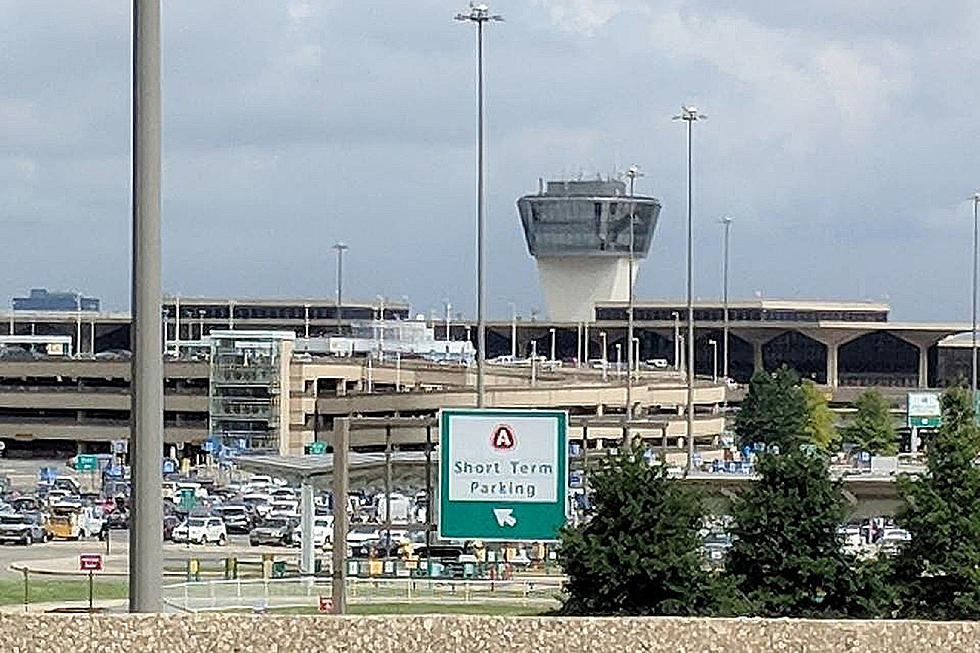
Ebola travel jitters prompt different approaches and policies
DALLAS (AP) -- Travel agents say customers are asking whether it's safe to fly, and what steps they should take to guard against Ebola.
Tim Husted, a traveler-services executive for Carlson Wagonlit Travel, a huge agency with offices around the world, said that fewer than 1 percent of the company's leisure travelers have changed a booking because of Ebola. There is even less of a reaction among business travelers, he said, although a few have requested routes that avoid Dallas.
Maryann Cook, a travel agent in New York, said that a Florida doctor who booked a $197,000 family safari trip to South Africa for 30 people next year wants to rebook it for 2016, even if it means losing a $60,000 deposit.
"He didn't feel a real urgency because South Africa is so far away from the problem spot," Cook said, "but he got a lot of stress from his children and his children's children." She said most of her other customers are still booking and still traveling.
Blake Fleetwood, another New York travel agent, said that a client who booked travel to India is worried about a stopover in London, where there could be a greater chance of exposure to travelers from West Africa.
"We're hearing from everyone. Even people flying domestically are very nervous," Fleetwood said. He reassures them that flying is safer than other forms of travel. But he understands - and shares - their anxiety.
Calls about travel insurance are also rising. Some people who bought insurance and now want to cancel their trip because of anxiety are finding out that the insurance won't help, said Megan Singh, marketing manager for SquareMouth.com, a travel-insurance-comparison website.
"That really is canceling out of fear, and it's not covered by most standard policies," she said.
Singh said consumers can buy a policy that lets them cancel for any reason, but it will cost 40 to 50 percent more than standard policies that run about 6 to 11 percent of the trip's cost.
Some notes about Ebola and travel:
- The U.S. government cautions against nonessential travel to Liberia, Guinea and Sierra Leone. The Obama administration has resisted Republican calls for a ban on travel from those countries.
- Travelers leaving those three countries are screened at the airport for fever, a symptom of the disease. U.S. officials say about 150 passengers a day from one of those countries enters the United States. They are screened again if they enter at one of five big international airports.
- Health experts and the federal Centers for Disease Control and Prevention say the risk of getting Ebola in the U.S. is extremely low and can happen only by direct contact with vomit, diarrhea or other bodily fluids of an infected and sick person. Dr. Robert Murphy, director of the Center for Global Health at Northwestern University's medical school, said there is only a minuscule chance of catching Ebola on an airplane in the U.S. because the virus is not airborne. His recommendation for travelers? Use hand sanitizer - to protect against the flu virus, which is airborne and much more common.
- Airlines say they clean their planes every night according to CDC recommendations, including the use of heavy-duty cleansers on armrests, tray tables and in lavatories.
Demands are rising in Washington for the U.S. to ban travelers from countries in West Africa, but the Obama administration is resisting and says the screening measures already in place for travelers are more effective.
There are no direct flights from Liberia, Guinea or Sierra Leone to the U.S. Officials say that about 150 passengers a day arrive in the U.S. from those countries after making a connecting flight, usually in Europe. Most arrive at one of five airports, where screening for fever - a symptom of the disease - began this week.
Here's what different countries are doing about travel to and from the Ebola hot spots:
EUROPE:
United Kingdom: No formal ban. No direct flights from the three affected countries to London's Heathrow Airport since British Airways suspended service there in August due to the outbreak. There is passenger screening at Heathrow and soon at two other airports.
Germany: No ban and no plans for one. There is no formal monitoring or screening of arriving passengers. Like the U.S., Germany doesn't have any direct flights from those three African countries.
France: The government advises against non-essential travel to Liberia, Guinea or Sierra Leone. Air France suspended flights to Sierra Leone but has maintained once-a-day flights from Guinea, a former colony. Beginning Saturday, temperature checks for passengers arriving in Paris from the Guinean capital of Conakry.
Netherlands: The government advises against travel to the same three nations and urges Dutch citizens in those countries to leave. No direct flights. Currently no extra screening at Amsterdam's Schiphol Airport, although passengers on flights to and from Nigeria receive flyers with information about Ebola.
Ireland: No ban planned. No Ebola monitoring at airports. Ryanair flies to Morocco but not to any of the countries in the Ebola epidemic. The U.S. has customs stations at Dublin and Shannon airports for U.S.-bound travelers.
Czech Republic: Starting Tuesday, medical checks at Prague's Vaclav Havel Airport for passengers who visited Liberia, Guinea or Sierra Leone in the previous 42 days.
Albania: No ban.
Turkey: Passengers from Liberia and Nigeria are undergoing more intensive screening. Those with high fever or other symptoms are being quarantined. Six travelers suspected of having Ebola turned out to have malaria instead.
MIDDLE EAST:
Israel: No direct flights. The government plans to ask passengers on connecting flights from West Africa, mostly through France or Ethiopia, to declare if they have been to one of the Ebola countries recently and if they feel ill.
Egypt: Airport officials say there is no travel ban.
Saudi Arabia: People from Liberia, Guinea or Sierra Leone could not get visas for the annual Hajj pilgrimage, a move that affected more than 7,000 travelers. Stopped issuing work visas to nationals of those countries.
United Arab Emirates: Dubai-based Emirates halted flights to Guinea in August. Dubai International Airport, a major hub for global air traffic, has no specific Ebola screening.
Qatar: Qatar Airways advises against non-essential travel to Liberia, Guinea or Sierra Leone and does not fly there.
LATIN AMERICA and CARIBBEAN:
Colombia: Bars entry by any travelers requiring visas who have been in Liberia, Guinea, Sierra Leone, Nigeria or Senegal.
Haiti: The prime minister tweeted that the UN stopped sending peacekeepers from Africa to Haiti as a preventive measure.
Jamaica: Bans entry by anyone who has been in Liberia, Guinea or Sierra Leone within four weeks.
Guyana: Diplomatic missions have been told not to issue visas to people from the affected West African countries.
Trinidad and Tobago: Denies entry to residents of Liberia, Guinea, Sierra Leone, Nigeria and Democratic Republic of Congo. Others who have visited those countries within six weeks will be quarantined for 21 days.
Saint Lucia: Visitors from Liberia, Guinea and Sierra Leone can't enter until the Ebola outbreak is under control. Travelers from Nigeria need to present a recent medical certificate declaring them free of the virus.
Antigua: No entry to anyone who has been in affected countries within the past 21 days and suspended granting of visas.
Saint Vincent and the Grenadines: Bans nationals from Nigeria, Sierra Leone and Guinea.
Belize: Issued a ban Friday on visas to persons from West African countries.
More From New Jersey 101.5 FM









